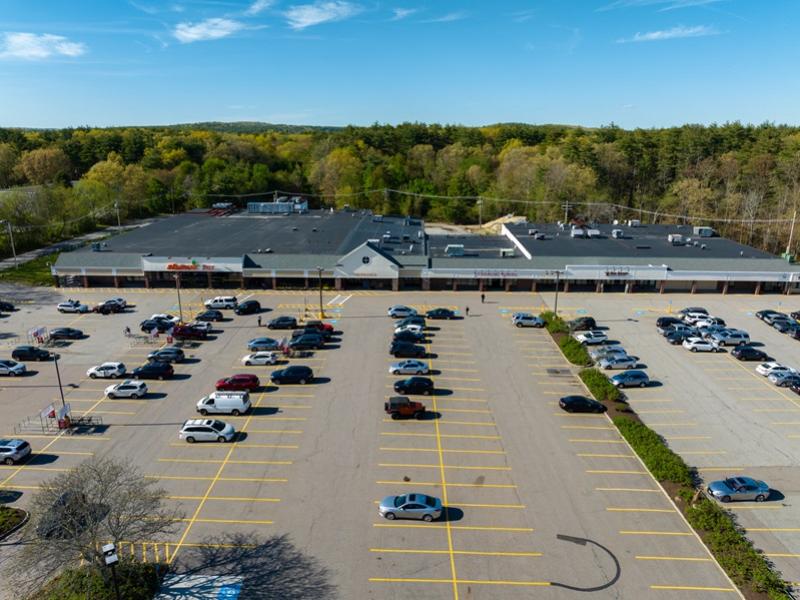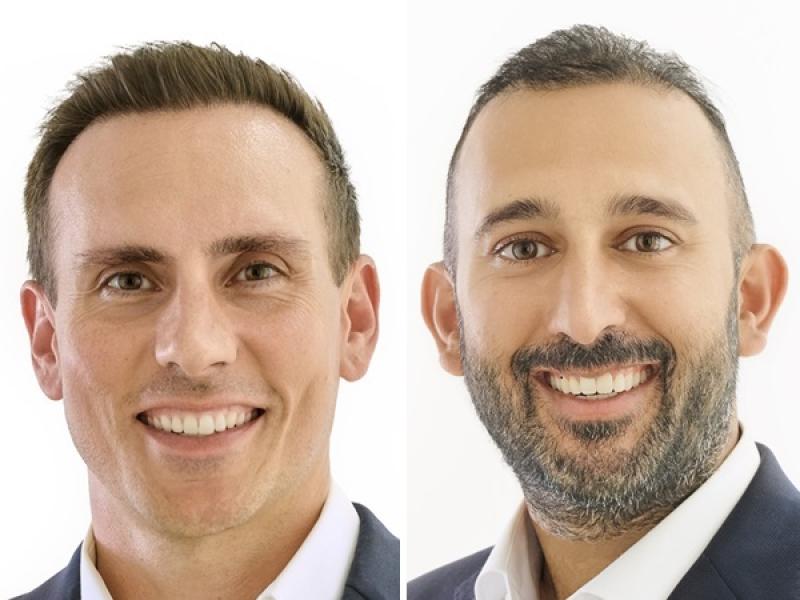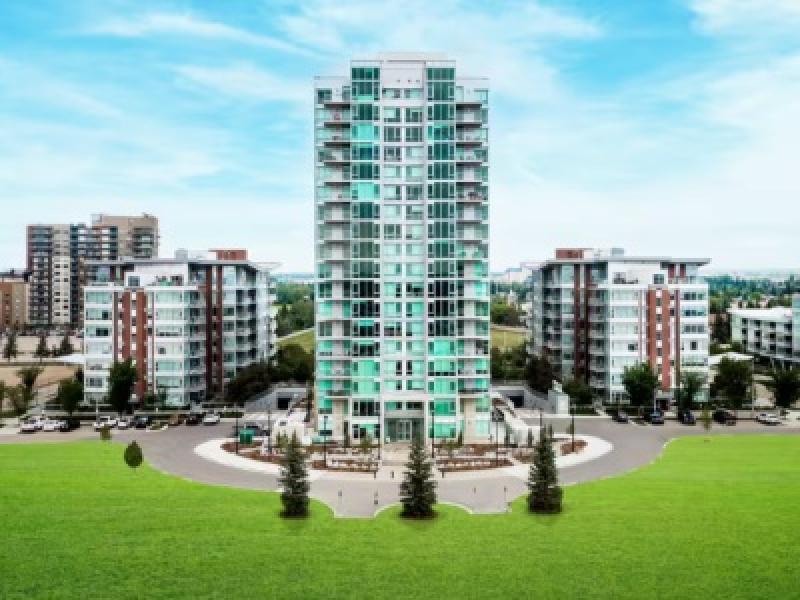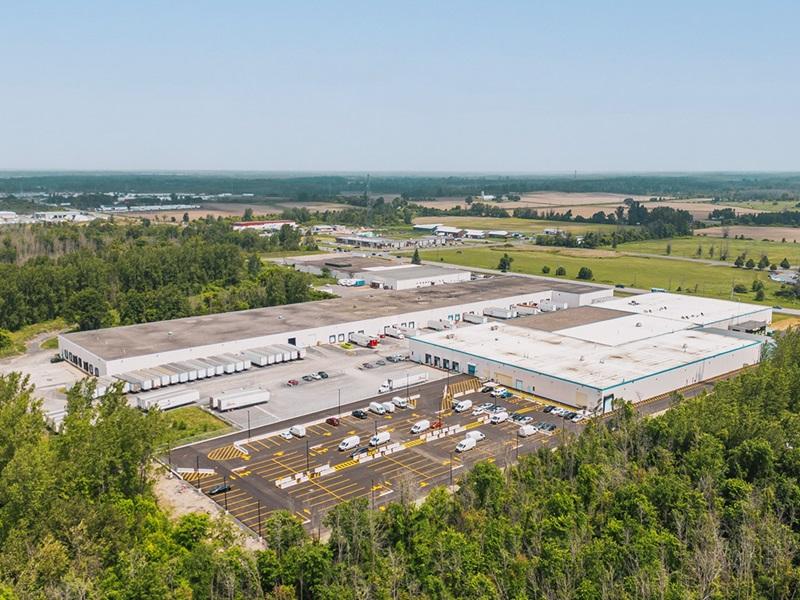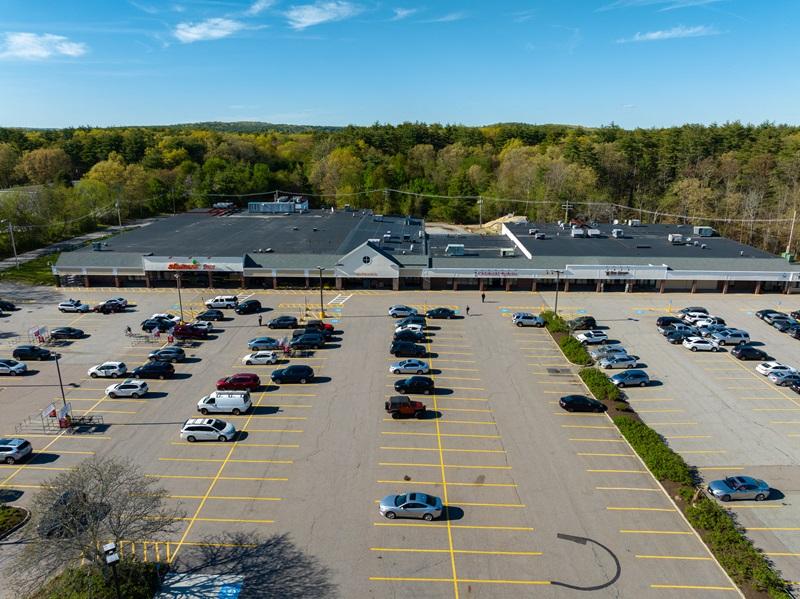
Montreal-based real estate development firm Brasswater marked its 10th anniversary earlier this year and isn’t slowing down as it enters its second decade.
Founded by Ian Quint, the company has over 70 employees overseeing approximately 12 million square feet of properties in Canada and the United States and another 15 million square feet of land for future industrial development in Quebec.
Approximately 70 per cent of Brasswater’s more than 80 assets are industrial, 25 per cent are retail and the remainder are office properties.
“We have a sizeable portfolio so now we're acting more like a mature company than we used to before,” managing director for the United States Simon Yeramian told RENX in an interview that also included vice-president of investments for Canada Alex Leclerc.
“We're taking a bit less risk and being a bit more careful about about what we do next, but still with the same eagerness to do deals and buy as much real estate as we can.”
Brasswater’s most recent acquisition
Brasswater’s latest acquisition involved a $53-million sale-leaseback deal brokered by CBRE with Montreal-based packaging solutions company Supremex Inc. for two properties.
A 138,826-square-foot building at 7213 Rue Cordner in the Montreal borough of LaSalle, near Highway 20, features 30-foot clear heights and excellent accessibility.
A 101,134-square-foot building at 400 Humberline Dr. in the Toronto suburb of Etobicoke provides 22-foot clear heights and benefits from a prime location near Highway 427. It marks Brasswater’s first entry into the Greater Toronto Area.
“Part of the objective over the last 12 to 24 months has been to find assets outside of Quebec to bring some sort of diversification, from a geographic perspective, to our portfolio,” Leclerc explained. “We've been looking at the Maritimes, we’ve been looking a bit in Western Canada, and the Ontario opportunity in Etobicoke just kind of happened.”
Recent U.S. acquisitions
Brasswater opened the year by acquiring two retail properties in Massachusetts: the 124,405-square-foot Stow Shopping Center in Stow; and the 63,003-square-foot Yarmouth Shopping Center in South Yarmouth.
“We are in the process of acquiring a few more properties similar to those, also retail centres in New England,” Yeramian said. “I'm currently in Connecticut visiting one right now.
“We're buying another one in Massachusetts and another one in Rhode Island. These are all grocery-anchored retail properties with the typical tenant mix of gyms, liquor stores, a few restaurants, some discount retailers like T.J. Maxx or Five Below, and some hardware stores.”
Brasswater is looking to grow its retail platform across the northeastern U.S. and acquire value-add industrial properties in the same region.
“We've always liked the northeast because the cities and the markets are fairly similar to what we're used to in Canada,” Yeramian said. “They're very densely populated areas.
“There are very high barriers to entry and it's very hard to build anything new, so there's limited new supply. But the problem in the past has been that the prices have just been too high for our liking.”
Some northeastern U.S. industrial acquisition opportunities are starting to make more financial sense for Brasswater, but the company will also continue to invest in industrial properties in less expensive midwestern U.S. markets. It prefers to focus its retail acquisitions in the northeast, as pricing has been favourable and it has better demographics.
Yeramian would like to have a cluster of industrial properties in New England and another based in Michigan, Illinois and Ohio to make the portfolio easier to manage. Brasswater is open to selling properties if it can get the right price and it makes sense from a strategic perspective.
Acquisition strategies
Brasswater’s initial investment strategy was to acquire properties with high vacancy rates, or that needed work, and add value to them to attract tenants and increase rents.
“We're a value-driven group that likes to put our sauce into different assets and derive value when we buy right and then generate that upside,” Leclerc said.
“These days, because the industrial market has been slower on the leasing front and interest rates are higher, we're trying to take a bit less risk, so we've been acquiring more properties that have good cash-flow in place,” Yeramian said.
When Brasswater has wanted to transact, it has had the resources available.
“There hasn't been an opportunity that we've looked at that we've passed on because of a lack of resources,” Leclerc said. “Partners like the stability, the expertise and the historical returns that we bring.”
“Historically, we've never really looked for any partners or investors,” Yeramian added. “We have maybe three or four that are active with us and it's just a lot of repeat investments and satisfied investors.
“We don't have to raise funds or go out and meet a lot of new investors and raise capital that way. We've been fortunate to have some great partners that want to stick with us for the long term.”
Development activity
Brasswater owns 15 million square feet of land on different sites in Quebec to develop industrial properties.
“We will be starting development on one of those sites in the fall, and we’re looking at potentially starting a second one in the fall as well, for delivery at some point in 2026,” Leclerc said. “Every project would be built to suit with tenants in place. We don't do spec development.”
It was easier to find industrial tenants looking for space in the 100,000- to 300,000-square-foot range in the early years of this decade than it is today, which is why development has slowed.
“The upside, though, when you're patient, is that you can build with exactly the design that your tenant wants so you're sure that it's satisfied from Day One,” said Leclerc. “As soon as it's ready to go, it's immediately leased and you can refinance the property right away.”
Brasswater had been reluctant to develop multi-tenant industrial buildings because they can be more difficult to pencil out financially, but Leclerc said the company is now also considering this as an option.



